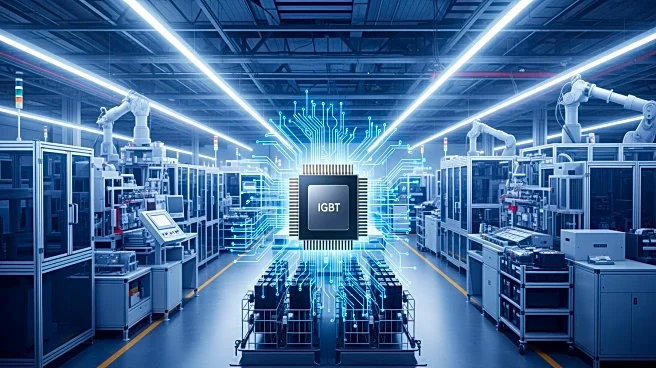What's Happening?
Magnachip Semiconductor has announced an expansion of its industrial insulated gate bipolar transistor (IGBT) business, leveraging technology developed in collaboration with Hyundai Mobis. This partnership, which began in 2015, focuses on IGBTs for traction
inverters used in electric and hybrid vehicles. IGBTs are crucial power semiconductors for high-power systems requiring high voltage and current. The global IGBT market, valued at over $11 billion in 2024, is projected to grow significantly in the coming years. Hyundai Mobis has led the structural design, while Magnachip has provided semiconductor process technology expertise. Mass production of inverters incorporating these IGBTs is expected to begin in 2026. Magnachip plans to launch a new series of industrial IGBTs targeting applications in industrial, AI, and renewable energy markets.
Why It's Important?
The expansion of Magnachip's IGBT product line is significant for the semiconductor industry, particularly in the context of electric and hybrid vehicle markets. As the demand for electric vehicles grows, the need for efficient power semiconductors like IGBTs becomes critical. This collaboration positions Magnachip to compete more effectively in high-performance markets, potentially leading to advancements in vehicle technology and energy efficiency. The partnership also highlights the strategic importance of semiconductor innovations in supporting the transition to renewable energy and AI applications, which are key areas of growth in the global economy.
What's Next?
Magnachip plans to introduce its new series of industrial IGBTs in the first half of the next year. The company aims to enhance its market presence in industrial, AI, and renewable energy sectors. Hyundai Mobis's mass production of inverters using these IGBTs is slated for 2026, which could further solidify the partnership's impact on the automotive industry. Stakeholders in the semiconductor and automotive sectors will likely monitor these developments closely, as they could influence future collaborations and technological advancements.
















